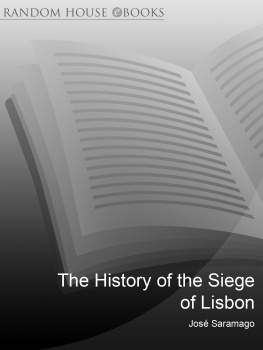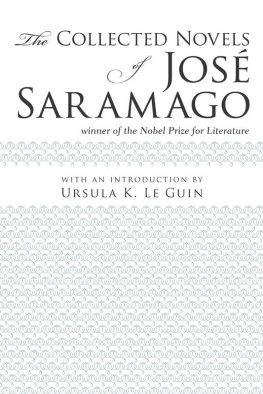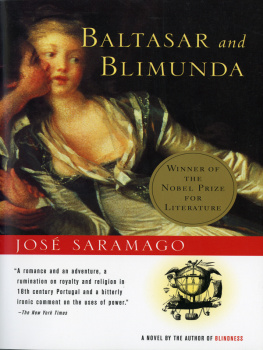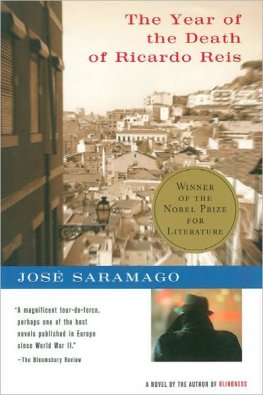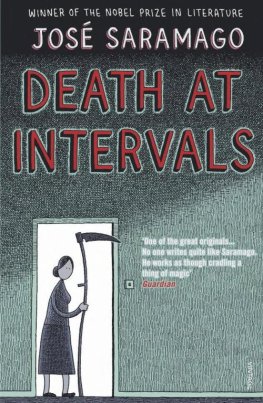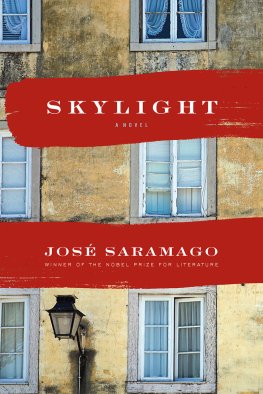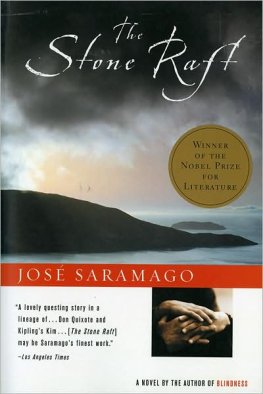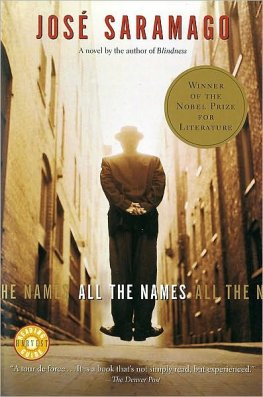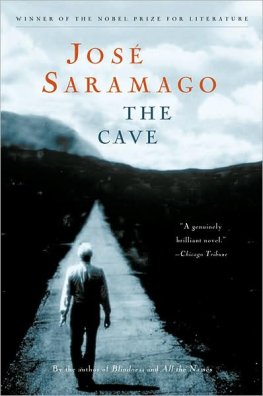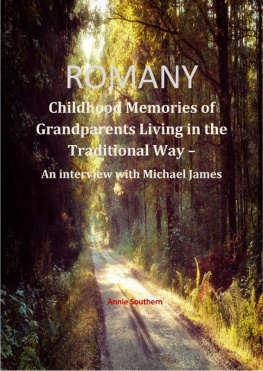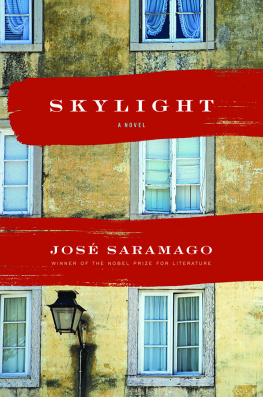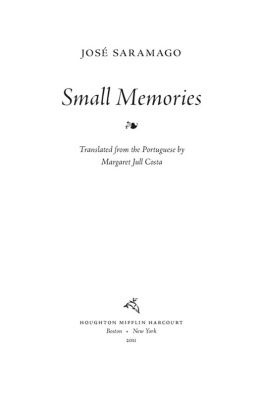
Jos Saramago
Small Memories
Translated from the Portuguese by Margaret Jull Costa
Copyright 2006 by Jos Saramago and Editorial Caminho, SA, Lisbon, by arrangement with Literarische Agentur Mertin, Inh. Nicole Witt e. K., Frankfurt am Main, Germany
English translation copyright 2009 by Margaret Jull Costa
First published as As Pequenas Memrias in 2006 by Editorial Caminho, SA, Lisbon
First published in Great Britain in 2009 by Harvill Secker, Random House
For Pilar, who had not yet been born
and who took so long to arrive
Let yourself be led by the child you were.
From The Book of Exhortations
THE VILLAGE IS CALLED Azinhaga and has, so to speak, been where it is since the dawn of nationhood (it had a charter as early as the thirteenth century), but nothing remains of that glorious ancient history except the river that passes right by it (and has done, I imagine, since the world was created) and which, as far as I know, has never changed direction, although it has overflowed its banks on innumerable occasions. Less than half a mile from the last houses, to the south, the Almonda, for that is the name of my village's river, meets the Tejo, which (or, if you'll allow me, whom) it used to help, in times past and as far as its limited volume would allow, to flood the fields when the clouds unleashed the torrential winter rains, and the dams upstream, brimful and bursting, were obliged to discharge the excess of accumulated water. The land around there is flat, as smooth as the palm of your hand, with no orographic irregularities tospeak of, and any dikes that were built served not so much to contain the powerful rush of the river when it floods as to guide it along a course where it would cause least damage. From those distant days onward, the people born and bred in my village learned how to deal with the two rivers that shaped its character, the Almonda, which slips past its feet, and the more distant Tejo, half-hidden behind the wall of poplars, ash trees and willows that accompany it, and, for good reasons and bad, both rivers are omnipresent in the memories and conversations of every family. It was here that I came into the world and it was from here, when I was not yet two years old, that my parents, migrants driven by necessity, carried me off to Lisbon and to other ways of feeling, thinking and living, as if my having been born in the village were merely the result of some mistake made by chance, some momentary lapse on the part of destiny, a lapse for which destiny still had the power to make amends. This proved not to be the case. The child, unnoticed, had already put out tendrils and sent down roots, and there had been time for that fragile child-seed to place his tiny, unsteady feet on the muddy ground and to receive from it the indelible mark of the earth, that shifting backdrop to the vast ocean of air, of that clay, now dry, now wet, composed of vegetable and animal remains, of detritus left behind by everything and everyone, crushed and pulverized rocks, multiple, kaleidoscopic substances that passed through life and to life returned, just like the suns and the moons, times of flood and drought, cold weather and hot, wind and no wind, sorrows and joys, the living and the not. Only I knew, without knowing I did, that on the illegible pages of destiny and in the blind meanderings of chance it had been written that I would one day return to Azinhaga to finish being born. Throughout my childhood and my early adolescence, that poor, rustic village, with its murmuring frontier of green trees and water, with its low houses surrounded by the silver-gray of olive trees, sometimes scorched by the burning summer sun, sometimes gripped by the murderous winter frosts or drowned by the floodwaters that came in through the front door, was the cradle in which my gestation was completed, the pouch into which the small marsupial withdrew to make what he alone could make, for good or possibly ill, of his silent, secret, solitary self.
The experts say that the village was born and grew up along a path, an azinhaga, which comes from the Arabic word as-zinaik meaning "narrow street," but, taken literally, that couldn't have been true in those early days, because a street, be it wide or narrow, is still a street, whereas a path can never be more than a shortcut, a way of reaching your destination more quickly, a route which, generally speaking, has no future and no great ambition to be any longer than it is. I don't know at what point the widespread cultivation of olive trees was introduced into the region, but I'm sure, because the older villagers told me so, that some of the most ancient of those trees would have seen two or possibly three centuries pass them by. They will see no more though. A few years ago, acres and acres of land planted with olive trees were ruthlessly cleared, hundreds of thousands of trees were cut down, ripped from the deep soil, or else the old roots of trees that had given light to lamps and flavor to stews were left to rot. The landowners, most of them owners of vast estates, were paid by the European Union per tree uprooted, and now, in place of the mysterious and vaguely troubling olive groves of my childhood and adolescence, in place of the gnarled trunks covered in moss and lichen and full of holes in which the lizards could hide, in place of the canopies of branches laden with black olives and with birds, what we see is one enormous, monotonous, unending field of hybrid corn, all grown to the same height, possibly with the same number of leaves per stem, and tomorrow perhaps with the exact same arrangement and number of ears and the same number of kernels on each ear. I'm not complaining, I'm not bemoaning the loss of something that didn't even belong to me, I'm simply trying to explain that this present-day landscape isn't mine, it isn't the place where I was born, I didn't grow up there. As we all know, corn is a vital crop, more important for many people than olive oil, and I myself, when I was a boy, in the years of my early adolescence, would walk the cornfields after the workers had finished harvesting, with a cloth bag slung around my neck, picking the ears they had missed. I must confess, however, that I now take a somewhat wicked pleasure-a revenge I neither sought nor wanted, but which came to meet me of its own accord-when I hear the people in the village say that it was a mistake, a huge blunder, to have got rid of the old olive groves. No point now, I think, crying over spilt oil. And they tell me that new olive trees are now being planted, but of a kind which, however long they live, will never reach any great height. This variety grows more quickly, and its lack of height makes it easier to pick the olives. What I don't know is where the lizards will go.
The child I was did not see the landscape as the adult he became would be tempted to see it from the lofty height of manhood. The child, while he was a child, was simply in the landscape, formed part of it and never questioned it, never said or thought, in these or other words: "What a beautiful landscape, what a magnificent panorama, what a fabulous view!" Naturally, when he climbed the stairs to the church belfry or scrambled to the top of a sixty-foot ash tree, his young eyes were capable of appreciating and noticing the wide open spaces before him, but it must be said that he was always more drawn to singling out and focusing on things and beings that were close, on what he could touch with his hands, on what offered itself to him as something which, without him being aware of it, demanded to be understood and absorbed into his spirit (the latter being a jewel which, needless to say, the child had no idea he carried within him): a snake slithering away, an ant carrying on high a crumb of wheat, a pig eating from the trough, a toad lolloping along on bent legs, or a stone, a spider's web, the soil turned up by the blade of the plough, an abandoned bird's nest, the drop of resin running like a tear down the trunk of a peach tree, the frost glittering on the undergrowth. Or the river. Many years later, using the words of the adult he then was, the adolescent would write a poem about that river-a humble stream of water that is now polluted and fetid-where he had bathed and which he had navigated. He called it "Protopoem" and here it is: "Out of the tangled skein of memory, out of the darkness of its inextricable knots, I tug at what appears to be a loose end./ Slowly I pull it free, afraid it might fall to pieces in my fingers./ It's a long thread, green and blue, and smells of slime, warm and soft as living mud./ It's a river./ It drenches my now wet hands./ The water flows over my outspread palms, and suddenly I'm not sure if the water is flowing out of me or washing over me./ I continue to tug at the thread, which is not just a memory now, but the actual body of the river itself./ Boats sail over my skin, and I am the boats and the sky above them, and the tall poplars that slide serenely across the luminous film of my eyes./ Fish swim in my blood and hesitate between staying too near the surface and plumbing the depths, just like the vague summonses issued by memory./ I feel the strength of my arms and the pole that prolongs them./ It pushes down into the river and into me like a slow, steady heartbeat./ Now the sky is nearer and has changed color./ It's all green and full of singing because the songs of birds are springing awake on every branch./ And when the boat stops in a large clearing, my naked body gleams in the sun, among the still brighter light igniting the surface of the waters./ There, memory's confused recollections and the suddenly revealed face of the future fuse into one truth./ A nameless bird appears out of nowhere and perches silently on the stiff prow of the boat./ I wait motionless for the whole river to be bathed in blue and for the birds on the branches to explain to me why the poplars are so tall and their leaves so full of murmurings./ Then, with the body of the boat and the river safely back in the human dimension, I continue on toward the golden pool surrounded by the raised swords of the bulrushes./ There I will bury my pole two feet down in the living rock./ A great primordial silence will fall when hands join with hands./ And then I will know everything." No one can know everything or ever will, but there are moments when we're capable of believing that we will, perhaps because at that moment, soul, consciousness, mind, or whatever you care to call the thing that makes us more or less human, was filled to overflowing. I gaze down from the bank at the barely moving current, the almost stagnant water and, absurdly, I imagine that everything would go back to being as it was if only I could once again plunge my childhood nakedness into the river, if I could grasp in today's hands the long, damp pole or the sonorous oars of yesteryear, and propel across the water's smooth skin the rustic boat that used to carry, to the very frontiers of dreams, the being I was then and whom I left stranded somewhere in time.
Next page


